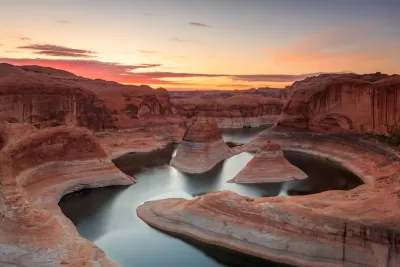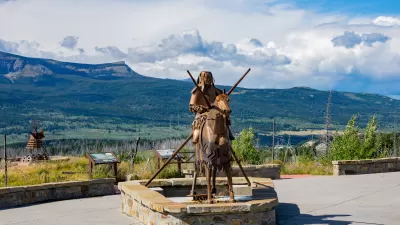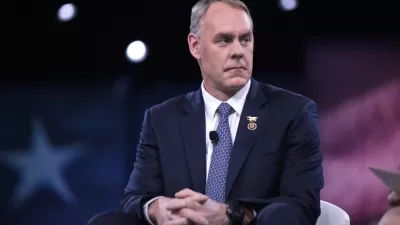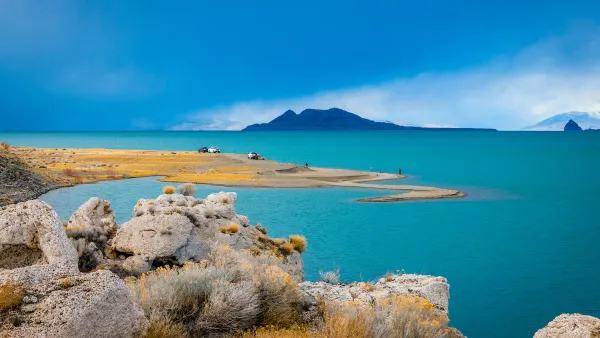Newly obtained documents reveal the extent of the state's efforts to strip protections from federal lands around the United States.

Pacific Standard's Jimmy Tobias reports on new insights into the depth of Utah's "anti-public lands agenda."
A 2016 document recently obtained from Governor Herbert's Public Lands Policy Coordinating Office outlines 15 pages of "top objectives" for federal lands, primarily falling under one broad category: deregulation. That document was apparently part of a "master list" of similar objectives being compiled by a conservative think tank to influence policymakers, Tobias writes, noting the influence wielded by conservative Utahn lawmakers in the arena of federal land regulations.
"Utah Congressman Rob Bishop is chair of the House Natural Resources Committee, a position from which he regularly inveighs against conservation laws like the Endangered Species Act, the Antiquities Act, and the Wilderness Act. Then there's Utah Senator Orrin Hatch, who was a key player in convincing President Donald Trump to review and ultimately roll back some national monument designations in the American West. Utah's other senator, Mike Lee, is in the mix too. He recently likened federal lands to the "royal forests" of European kings and called for their effective abolition."
That influence is particularly important, Tobias stresses, because many of the proposals in the document look beyond state borders to impact federal lands across the entire country.
"Among other things, the document … proposes the rollback of a suite of land, wildlife, and climate protections, including the Obama administration's now-defunct moratorium on new federal land coal leasing. And it calls on Congress to amend laws like the Federal Land Policy and Management Act and the National Environmental Policy Act to give states much greater control over federal land management."
FULL STORY: INSIDE UTAH'S ANTI-PUBLIC LANDS AGENDA

Planetizen Federal Action Tracker
A weekly monitor of how Trump’s orders and actions are impacting planners and planning in America.

Congressman Proposes Bill to Rename DC Metro “Trump Train”
The Make Autorail Great Again Act would withhold federal funding to the system until the Washington Metropolitan Area Transit Authority (WMATA), rebrands as the Washington Metropolitan Authority for Greater Access (WMAGA).

The Simple Legislative Tool Transforming Vacant Downtowns
In California, Michigan and Georgia, an easy win is bringing dollars — and delight — back to city centers.

The States Losing Rural Delivery Rooms at an Alarming Pace
In some states, as few as 9% of rural hospitals still deliver babies. As a result, rising pre-term births, no adequate pre-term care and "harrowing" close calls are a growing reality.

The Small South Asian Republic Going all in on EVs
Thanks to one simple policy change less than five years ago, 65% of new cars in this Himalayan country are now electric.

DC Backpedals on Bike Lane Protection, Swaps Barriers for Paint
Citing aesthetic concerns, the city is removing the concrete barriers and flexposts that once separated Arizona Avenue cyclists from motor vehicles.
Urban Design for Planners 1: Software Tools
This six-course series explores essential urban design concepts using open source software and equips planners with the tools they need to participate fully in the urban design process.
Planning for Universal Design
Learn the tools for implementing Universal Design in planning regulations.
Smith Gee Studio
City of Charlotte
City of Camden Redevelopment Agency
City of Astoria
Transportation Research & Education Center (TREC) at Portland State University
US High Speed Rail Association
City of Camden Redevelopment Agency
Municipality of Princeton (NJ)





























